
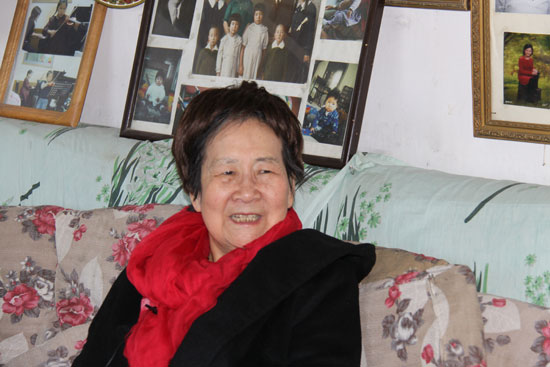 |
| Wen Jieruo talks to China.org.cn in Beijing, Dec. 5, 2012. (China.org.cn) |
At her old residence in Beijing, legendary Chinese translator Wen Jierou candidly shared her lifetime career in translation on Dec.6, 2012.
"You have to have some level of genius to be a successful writer, but you don't have to have as much to be translator," said Wen Jieruo, an 85-year-old veteran translator. "Just learn more and practice more."
Wen Jieruo was born in 1927 in Guiyang, Guizhou Province, and is a well-known translator of Japanese Literature in China, and is fluent in both English and Japanese.
Wen humbly explained that she is just a normal person. She said: "So I preferred to be a translator, because I never had any of the beautiful inspirations that my husband, Xiao Qian, had."
Xiao Qian was a famous Chinese essayist, editor, journalist and translator. He died at the age of 90 in Beijing in 1999.
In 1990, Xiao Qian was invited by Nanjing Yilin Publication to translate Ulysses, by James Joyce, into Mandarin, and was assisted by his wife Wen Jieruo. When the book was released in 1994, it became a surprise best-seller in China. Because of this startling achievement, they received the Caihong Translation Prize and the Best Foreign Literature Book Award in China.
Wen Jieruo revealed that back in the 1930's, a seed was planted by her father when they stayed in Japan for two years. Her father was a diplomat and loved books. One time, she and her father saw a Japanese translation of Ulysses in a bookstore; her father pointed to the book and said: "Look, the Japanese can translate this book, which is extremely difficult to understand."
Wen graduated from Tsinghua University in 1950 with a degree in English. Wen worked at People's Literature Publishing House for many years in different positions, including editor, senior editor and translator of Japanese literature.
When speaking of why she decided to translated Ulysses with Xiao, she explained that she had just retired and had some spare time. "I was mainly an editor, I never did translation as a profession, so this was perfect for me," Wen said. "Another reason is I mainly translate Japanese books and never have chances to show off my English!"
Wen herself rendered a great number of Japanese literary works into Chinese for almost five decades, including 14 novels, 18 novellas as well as over 100 novelettes. Such outstanding Japanese writers including Yasushi Inoue, Yasunari Kawabata, Tsutomu Mizukami and Yukio Mishima became popular in China through Wen's translations.
The accomplished lady has a long list of works to her credit, including Saint of Mt. Koya (included in the book series Selected Novels of Kyoka Izumi), Selected Novels of Ryunosuke Akutagawa, The Decay of the Angel and Ulysses.
Besides Ulysses, Wen said other works she was most satisfied with are E. M. Forster's Maurice and Yasunari Kawabata's Tokyo no Hito and Daisaku Ikeda's poetry selection.
"When you do translation, you must have a strong command of both Chinese and foreign languages. You have to practice hard and constantly increase your knowledge," she said. For example, as a Catholic, Wen said she knows the difference between "priest" and "Father," something that cannot be simply referenced in a dictionary.
Wen Jieruo just travelled to Japan for an academic seminar on Xiao Qian. This was her third visit to the country.
"People there received me warmly. They are so friendly, even though China and Japan are in a dispute over the Diaoyu Islands," Wen recalled. "When I was in Japan for the first time in the 1930s, some of them call us 'Chinamen,' but now they show us greater respect because China has grown stronger."
"China should be stable and punish all corrupt officials. When China is standing strong, no one can bully us."
Wen was also impressed by the progress of Japanese literary education. She said: "I discovered that Chinese professors are teaching Japanese literature in universities!"
Wen just received the Lifetime Achievement Award in Translation at the Second National Translation Conference in Beijing on Dec. 6, 2012.
Although she is 85, Wen Jieruo continues to work. "I just received two books from Seichou Matsumoto memorial museum in Japan and will be going to work on them over the next one or two years. I want to work another 10 to 20 years -- this is a big ambition, isn't it? But Zhou Youguang still works at the age of 107, and Yang Jiang works at the age of 101. They are my inspiration."


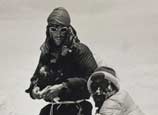


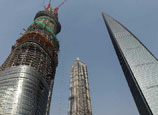
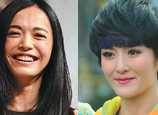
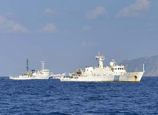






 Spectacular images of erupting volcanoes
Spectacular images of erupting volcanoes


![]()
